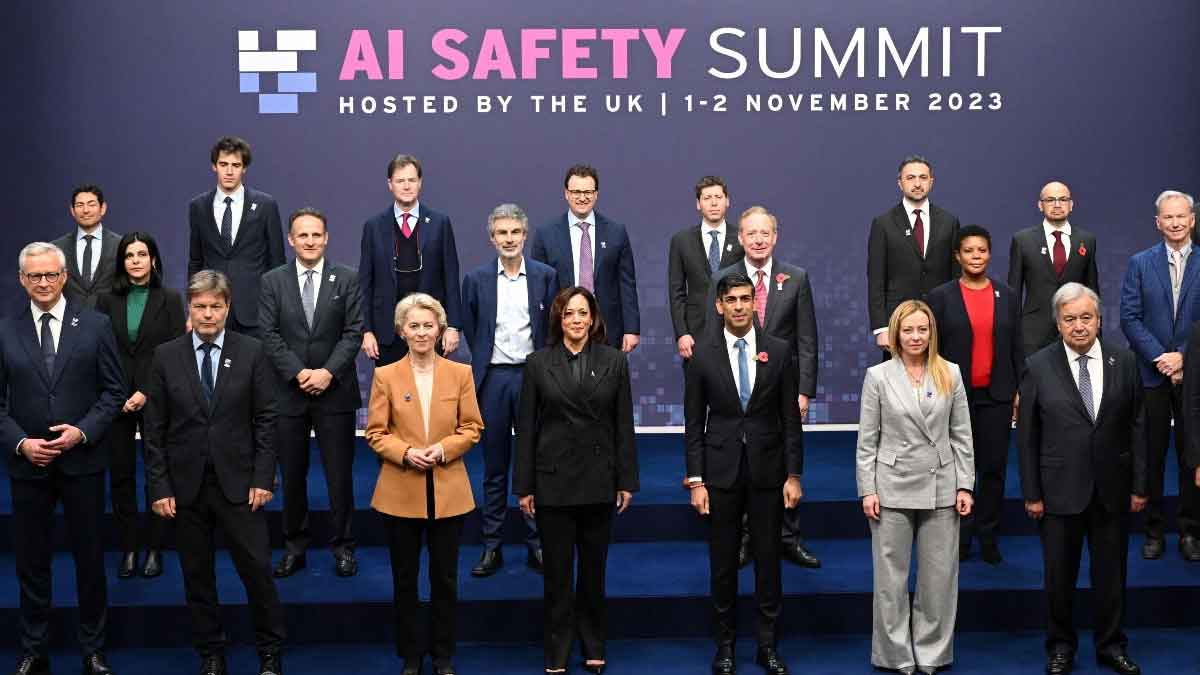- Home
- Billionaires
- Investing Newsletters
- 193CC 1000
- Article Layout 2
- Article Layout 3
- Article Layout 4
- Article Layout 5
- Article Layout 6
- Article Layout 7
- Article Layout 8
- Article Layout 9
- Article Layout 10
- Article Layout 11
- Article Layout 12
- Article Layout 13
- Article Layout 14
- Article Sidebar
- Post Format
- pages
- Archive Layouts
- Post Gallery
- Post Video Background
- Post Review
- Sponsored Post
- Leadership
- Business
- Money
- Small Business
- Innovation
- Shop
Recent Posts
Can AI Leaders Handle the Responsibility? Three Critical Questions

In the annals of history, few moments stand out as truly transformative. One such moment occurred on May 24, 1844, when Samuel F. B. Morse, seated in the basement of the Supreme Court Chambers, sent the first telegraph message, forever changing the way humans communicate. With a simple tap on a telegraph key, Morse transmitted the message “What hath God wrought?” to his associate Alfred Vail, stationed 30 miles away in Baltimore. This single act marked the dawn of a new era, where messages could be sent across vast distances in an instant, without the need for physical delivery.
Morse’s achievement was not just a technological breakthrough; it was a testament to the power of human ingenuity and innovation. His system of electrical communication paved the way for future advancements in telecommunications, laying the foundation for the modern world of email, fax, and telephone.
Today, as artificial intelligence (AI) continues to advance at a rapid pace, we stand on the cusp of another transformative moment. AI has the potential to revolutionize industries, improve efficiency, and enhance our quality of life. However, with this great power comes great responsibility. The individuals and organizations shaping the future of AI must carefully consider the ethical implications of their creations.
Imagine a gathering of the minds, where leaders from AI companies, government regulatory agencies, and researchers come together to address three critical questions:
1) Do you truly understand the magnitude of the invention you hold in your hands, and are you willing to use it for the betterment of humanity?
2) Will you abide by the principles laid out in Isaac Asimov’s “Three Laws of Robotics,” prioritizing the safety and well-being of humans?
3) Are you willing to stake your own compensation package on upholding these principles, ensuring that AI is used for the greater good?
These questions may seem daunting, but they are essential if we are to navigate the complexities of AI responsibly. As we look to the future, let us remember the lessons of Morse’s telegraph: that with great power comes great responsibility, and that by embracing the extreme, the abstract, and the absurd, we can achieve the impossible.
Recent Posts
Categories
- 193 Countries Consortium Partner1
- 193cc Digital Assets2
- 5G1
- Aerospace & Defense48
- AI37
- Arts3
- Banking & Insurance11
- Big Data3
- Billionaires1,026
- Boats & Planes1
- Business332
- Careers13
- Cars & Bikes79
- CEO Network1
- CFO Network17
- CHRO Network1
- CIO Network1
- Cloud10
- CMO Network18
- Commercial Real Estate7
- Consultant1
- Consumer Tech194
- CxO1
- Cybersecurity73
- Dining1
- Diversity, Equity & Inclusion4
- Education7
- Energy8
- Enterprise Tech29
- Events11
- Fintech1
- Food & Drink2
- Franchises1
- Freelance1
- Future Of Work2
- Games149
- GIG1
- Healthcare79
- Hollywood & Entertainment203
- Houses1
- India’s 1000 Richest1
- Innovation46
- Investing2
- Investing Newsletters4
- Leadership65
- Lifestyle11
- Manufacturing1
- Markets20
- Media195
- Mobile phone1
- Money13
- Personal Finance2
- Policy569
- Real Estate1
- Research6
- Retail1
- Retirement1
- Small Business1
- SportsMoney42
- Style & Beauty1
- Success Income1
- Taxes2
- Travel10
- Uncategorized12
- Vices1
- Watches & Jewelry2
- world's billionaires994
- Worlds Richest Self-Made Women3
Related Articles
Tim Walz Tops JD Vance in Favorability Ahead of Debate
As the political landscape heats up ahead of the upcoming vice presidential...
By 193cc Agency CouncilSeptember 26, 2024Harris vs. Trump: A Close Contest as Polls Indicate Narrow Leads
The upcoming election is shaping up to be a fierce battle between...
By 193cc Agency CouncilSeptember 26, 2024Musk Threatens Apple Device Ban Over OpenAI Integration
Elon Musk, known for his ventures such as Tesla, SpaceX, and OpenAI,...
By 193cc Agency CouncilJune 11, 2024Trump Hails NYPD’s Clearing of Columbia Encampment
Former President Donald Trump offered high praise for the New York Police...
By 193cc Agency CouncilMay 2, 2024















Leave a comment